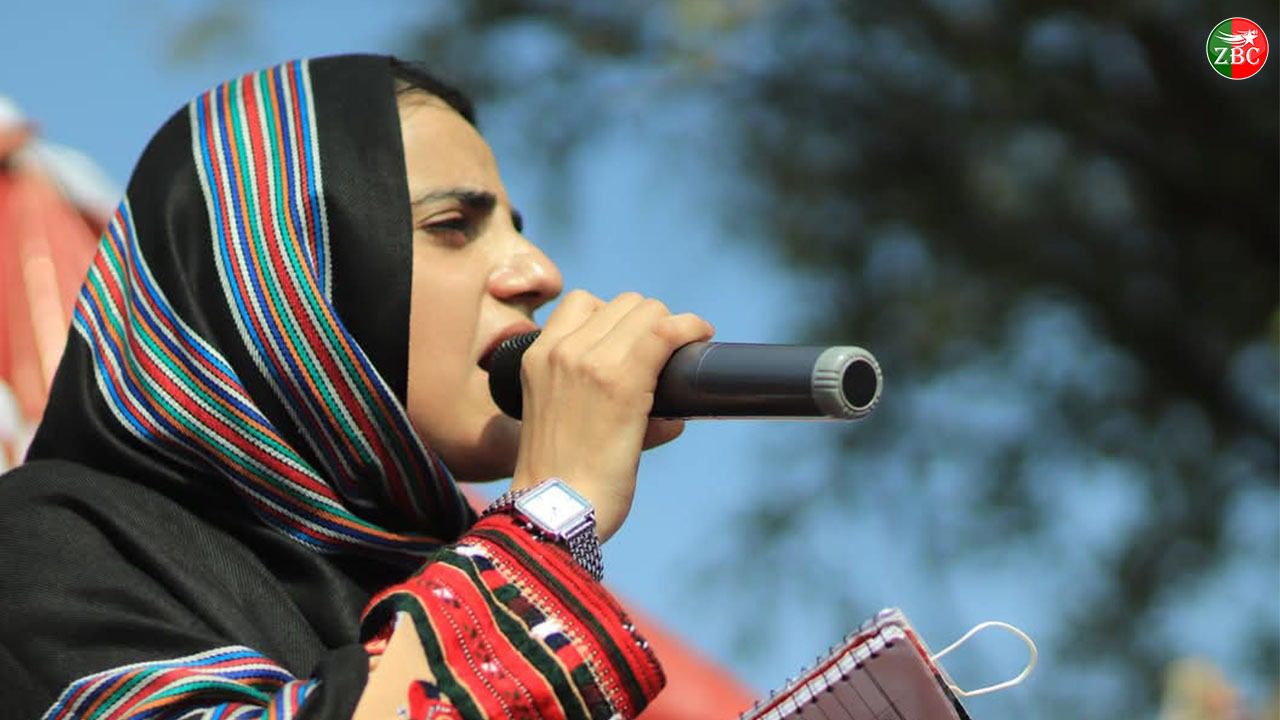
Quetta, Balochistan: In a powerful essay written from her cell in Quetta’s Hudda Jail, renowned Baloch activist and leader of the Baloch Yakjehti Committee (BYC), Dr. Mahrang Baloch, shared her reflections with TIME Magazine on her imprisonment, the legacy of state repression in Balochistan, and the price of peaceful resistance.
The piece, published by TIME on June 10, paints a haunting picture of not only her personal ordeal but the broader plight of the Baloch people. Dr. Mahrang writes, “It has been more than two months since I was imprisoned here, in the same jail where my father was detained nearly two decades ago, his only ‘crime’ was speaking for the rights of the Baloch people.”
She recounts how state security forces tried to coerce her into silence: “I was offered a deal— give up political activities, remain silent, and I would be released. I refused. To this day, the state has failed to present a single piece of evidence proving I committed a crime. Their only so-called evidence is a press conference I held just days before my arrest.”
In that press conference, Dr. Mahrang addressed a hostage situation involving 300 train passengers in Balochistan, which had been claimed by an armed group. “The purpose of my remarks was not to support the attackers,” she explains. “Our movement, the Baloch Yakjehti Committee, has always condemned violence. My intention was to differentiate between armed resistance and peaceful protest.”
According to Dr. Mahrang, the Pakistani state deliberately erases that distinction. “Anyone who speaks for the rights of the Baloch is labeled a terrorist. They are abducted, disappeared. If they reappear, it’s often as corpses. After the train incident, 24 bodies were brought to Quetta’s civil hospital, 13 were buried overnight without being identified. Why?”
She questions the state’s narrative: “The armed group released identities and photos of 12 of their fallen fighters. Who were the rest? We feared they included previously disappeared persons. We demanded DNA testing of the bodies, a simple, humane request. For this, I was imprisoned. For daring to draw a line between peaceful dissent and violence.”
Dr. Mahrang also writes about her international advocacy. In May 2024, she attended events in Norway hosted by PEN Norway and the World Expression Forum. “There, individuals linked to the Pakistani embassy harassed me, but Norwegian security intervened. Upon returning to Pakistan, I was charged with treason as if I had returned from a terrorist camp, not an international human rights forum.”
She continues, “When I was named to TIME’s Time100 Next list in October, the state’s hostility intensified. I was labeled a Western agent, the ‘next Malala,’ a foreign puppet. My surveillance increased. I was placed on the Fourth Schedule, a list used to restrict movement. I now understand the price of peaceful resistance.”
“Information about Balochistan is systematically cut off from the world,” she adds. “Journalists who speak out are killed, abducted, or exiled. Over 40 journalists have been killed since 2000, according to the Balochistan Union of Journalists. Foreign media have no access.”
Dr. Mahrang reflects on how the state reacts with particular intolerance to women who lead. “When I was named to BBC’s 100 Women list and nominated for the Nobel Peace Prize, the repression escalated. My life came under greater threat. My sister told me that ISIS-Khorasan released a 100-page booklet in Urdu labeling me a Western agent, just because TIME recognized my work and I visited Norway.”
She also mentions her imprisoned colleagues: “With me are other BYC leaders, Sibghatullah Shahji, Bibarg Zehri (who is physically disabled), Gulzadi, and Beebow. I tell them, we are not the first to be jailed for speaking truth, Nelson Mandela, Narges Mohammadi, and others walked this path before us. We draw strength from their courage.”
“Our movement is peaceful. We protest enforced disappearances, extrajudicial killings, forced displacements, and human rights violations. We are the rightful heirs of projects like Reko Diq and Saindak, yet we see no benefit. Gwadar, the gateway to CPEC has been taken from us, and yet 70% of Balochistan’s population lives below the poverty line.”
She continues, “The state calls us terrorists, but we are peaceful. It is the state that uses weapons and power to silence dissent. What is happening in Balochistan is now spreading to other parts of Pakistan. Today, Imran Khan and his party face the same accusations. They too are in jail. Are they terrorists?”
Dr. Mahrang challenges the state directly: “If the security institutions are as competent as they claim, why have they failed to produce a single piece of evidence against me? Why not try me in a fair and transparent court? Because it is not a matter of law it is a matter of fear. They fear the truth.”
She ends on a deeply personal note: “This prison is not just a building, it carries the weight of my father’s memories. I spent my childhood not with toys, but with posters of my missing father. When I grew up, I received his bullet-ridden, tortured corpse. This is not just my story it is the story of every Baloch child.”
“We are a generation raised under the shadow of state repression. We have pledged that no child after us should endure the same. The state is powerful, it controls the media, judiciary, parliament, and law enforcement. It runs proxy groups and armed militias. Our imprisonment is part of a war of narratives. We are symbols of peaceful resistance.”
She concludes:
“Raising your voice for justice is not a crime.
Speaking against state oppression is not treason.
Demanding rights is not terrorism.”

